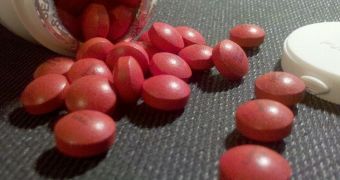The results of a new scientific study indicate that distracting people with a difficult memory task and giving them a placebo are two different, but complementary, approaches to reducing pain response without the use of heavy drugs
Previous neuroimaging studies had proposed that the placebo effect was a high-level cognitive function, and also that distracting a person who was in pain was an excelled mechanism for reducing their response to the uncomfortable sensation.
Furthermore, researchers believed that the two approaches to pain relief were mutually exclusive. What the new study demonstrates is that there is no interference whatsoever between the two. In fact, their relieving effects are compounded, when both techniques are applied simultaneously.
During studies of this type, scientists usually monitor a region of the brain known to be involved in high-level cognitive functions, known as the dorsolateral prefrontal cortex (DPC). Aspects such as attention and working memory are largely controlled by the DPC.
The new conclusions could be extremely helpful towards developing new natural approaches to pain relief, which would basically reduce the amount of heavy medication people currently consume.
When placebos and distractions were used together, “the level of pain reduction that people experienced added up. There was no interference between them. That suggests they rely on separate mechanisms,” Columbia University investigator Jason T. Buhle adds.
Details of the new research effort were published in the latest issue of the esteemed scientific journal Psychological Science. The work was carried out on 33 test subjects, who underwent three observations sessions each.
“This study shows you can use them together, and get the maximum bang for your buck without medications,” Buhle explains. He adds that virtual reality machines are already in use in burn victim units at various hospitals.
However, it was unclear until now whether this approach reduced the efficiency of placebos the same patients were receiving, in order to reduce the amounts of morphine doctors administered to them regularly, PsychCentral reports.

 14 DAY TRIAL //
14 DAY TRIAL //